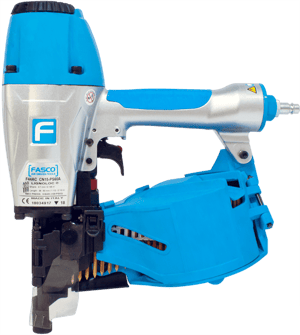
Did you know that fasteners originally were made of wood? Archaeological excavations of early Germanic sites have shown traces of wooden nails used as far into the past as 7,000 years ago. It wasn't until the era of the ancient Egyptians that the first recorded use of bronze nails showed up at around 5,000 years ago. Despite that, wooden nails were still favored throughout antiquity and into the 1600s for wood construction.
Wooden nails expand when exposed to water, and don't run the risk of rusting. Shipbuilders would take these features to their advantage to make stronger joins that could stand exposure to the elements without rotting out the wood. Victorian-era railroad construction in England saw the extensive use of wooden fasteners in place of metal spikes. Even early American mortise and tenon trusses were often joined with wooden nails.
Switch to Metal Nails
In the early 1800s, various machines were invented to automate the process of cutting nails from iron sheets. These nails, known as cut nails, grew in popularity over wooden nails for framing and construction. Today, most nails are manufactured from wire rather than sheets. Other than the use of wooden pegs in timber framing for cabins and cottages, wooden nails have long since fallen out of favor. Recent innovations in the construction industry have started looking at the wooden nail once again.
The Future of Wooden Nails
BECK has developed the world's first fireable, collated wooden nail, joining the wisdom of the past with the cutting-edge technological innovation of the present. The LIGNOLOC® nail has been designed to use properties of wood to its advantage to increase the quality, durability, longevity, and efficiency of construction jobs.
The specially designed tip of the LIGNOLOC® nail, and heat generated when it is driven in, causes the lignin of the nail to fuse to the surrounding wood. This inseparable substance-to-substance bond creates a remarkably high holding power, leading to a longer-lasting joint and ultimately higher quality workmanship. LIGNOLOC® nails are resistant to fungal infestation and are great for standing the test of time in outdoor environments. Wooden dowels take a lot of time and energy to use, considering all the pre-drilling that must be done. LIGNOLOC® nails are driven in pneumatically, allowing pure wooden joints to be made with the same speed and efficiency as joints made with metal nails.
LIGNOLOC® wooden nails are a step towards climate protection thanks to the reduced environmental impact their manufacturing and use in construction has. They are made of renewable European Beechwood and their carbon footprint is 70% lower than that of comparable steel or metal fasteners. Construction done with wooden nails is easily recyclable as the nails don't need to be removed.
Trust BECK with Your Fastening Needs
Learn more about how BECK is pushing the construction industry forward with its revolutionary new LIGNOLOC® wooden nail. Taking advantage of these innovations will not only help you save time and money, but it'll keep you ahead of the curve in the industry. Visit the LIGNOLOC® website below to learn more.
.svg.png)

